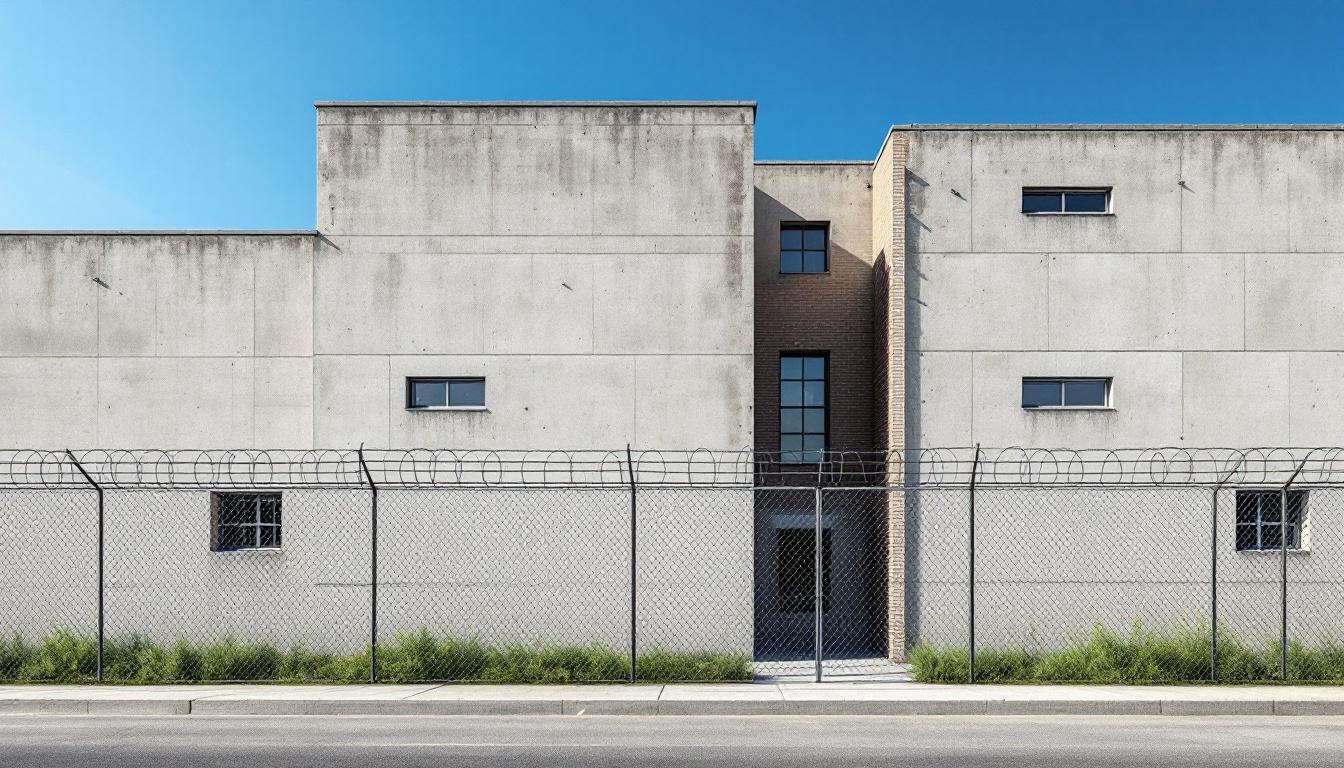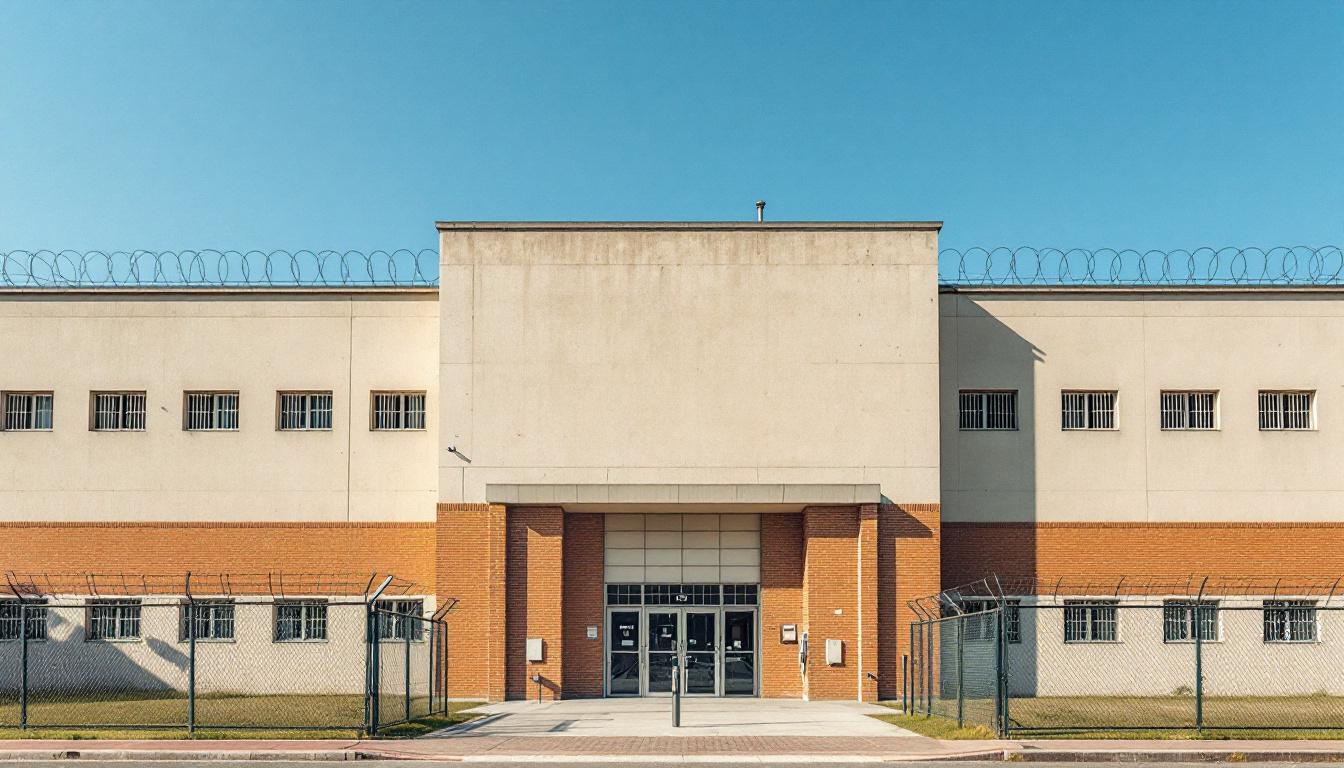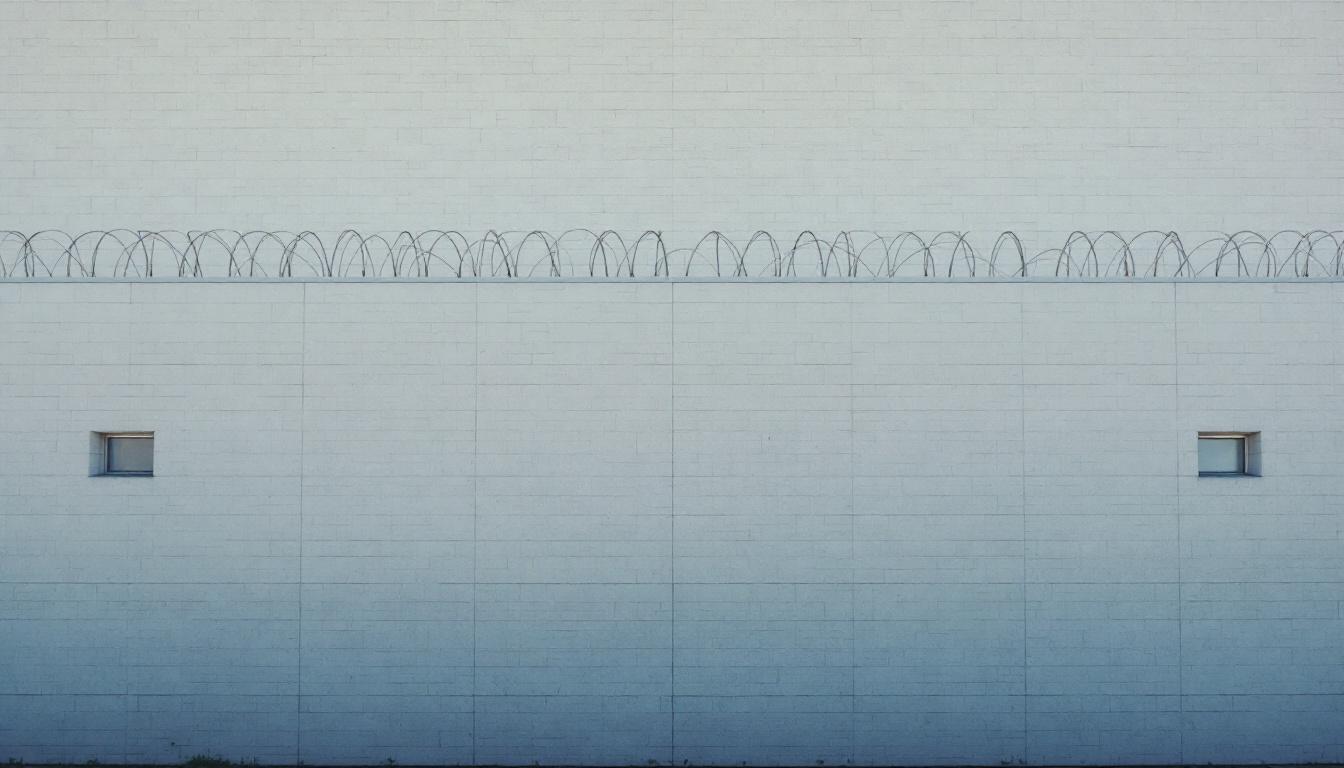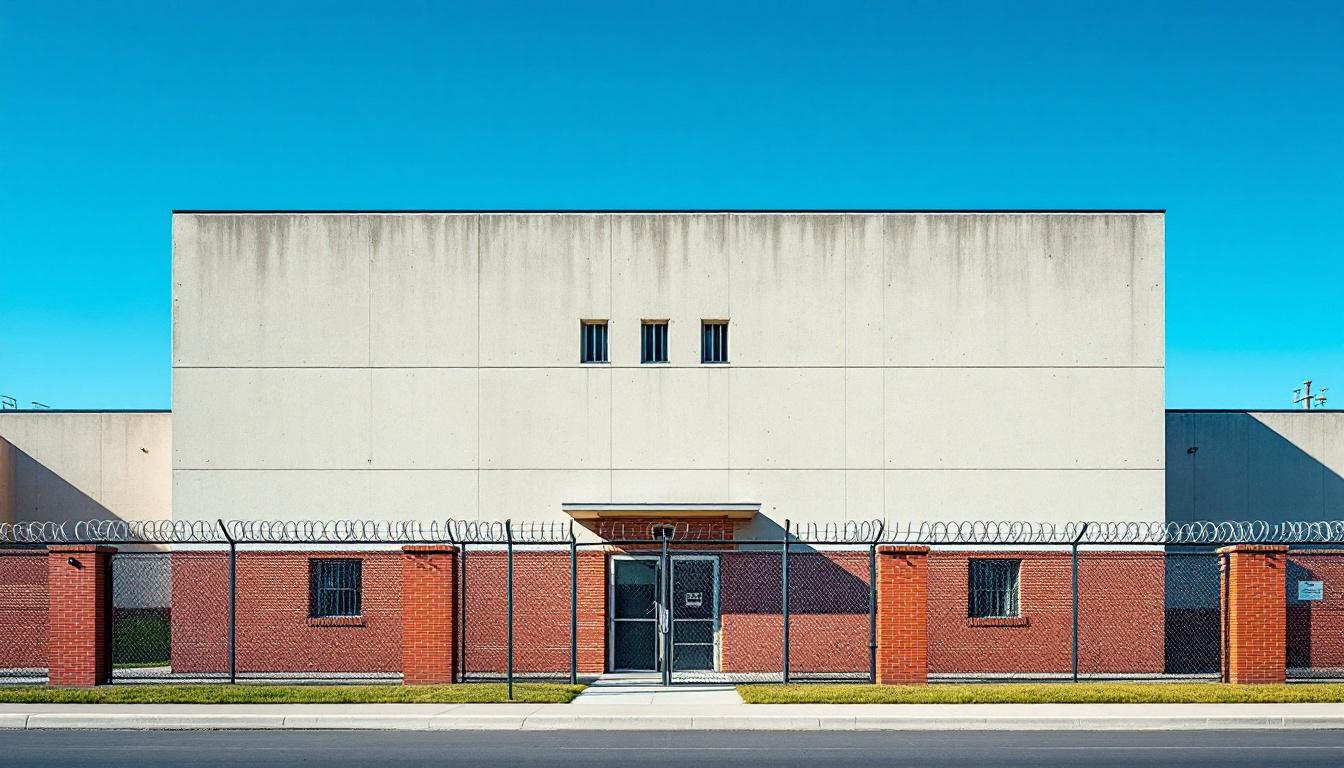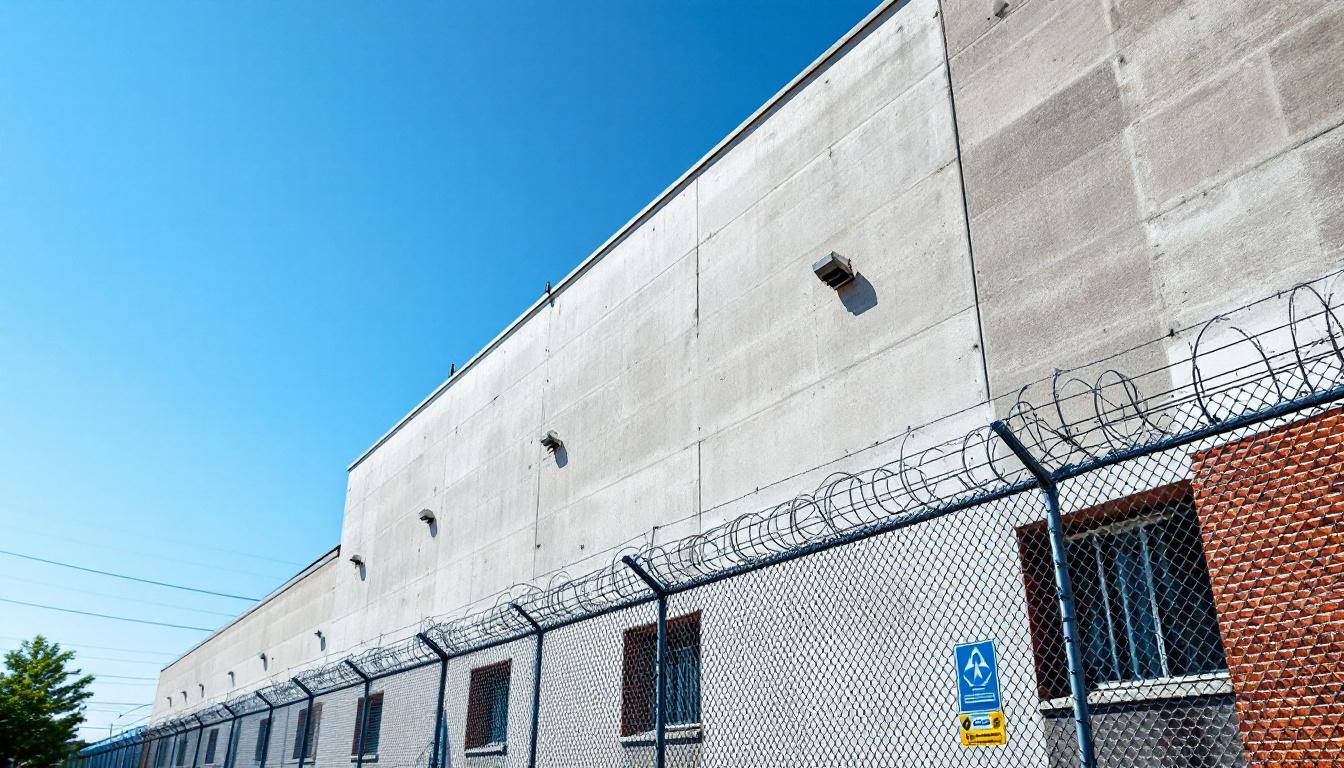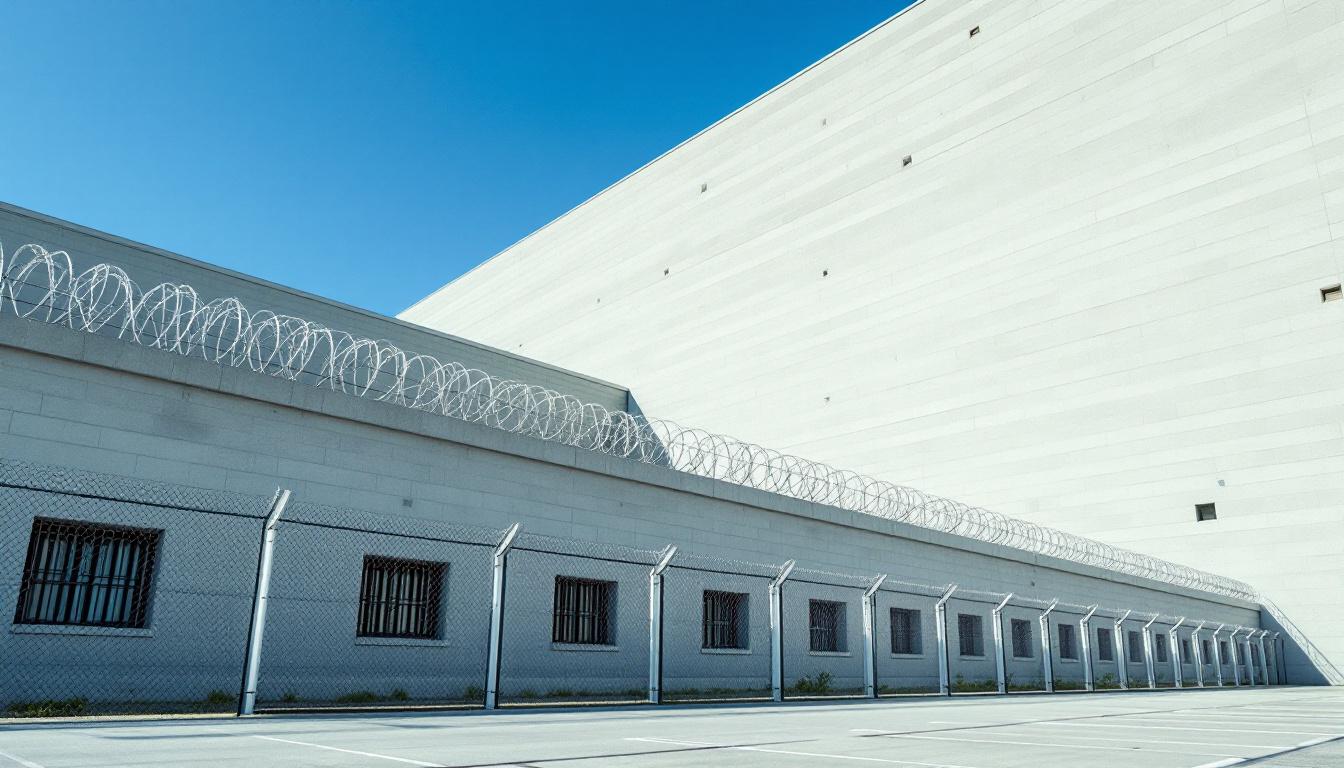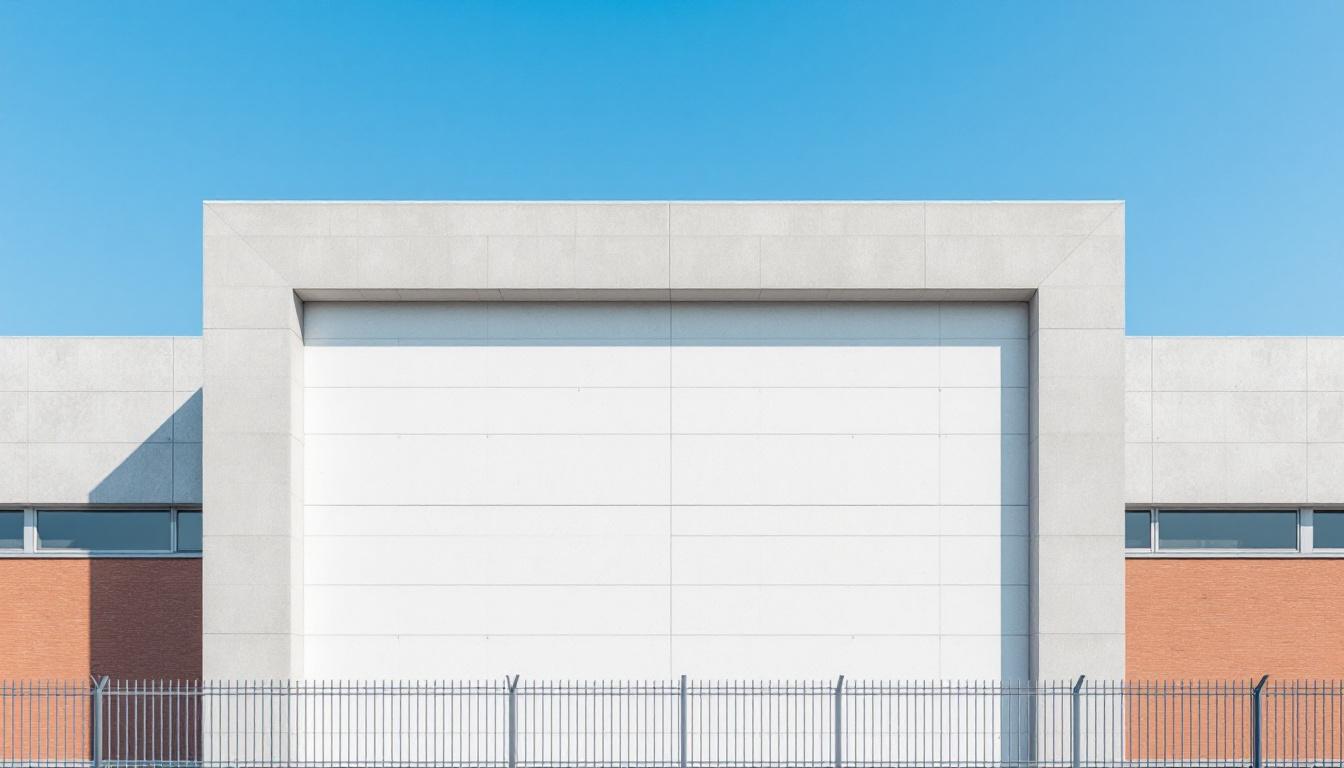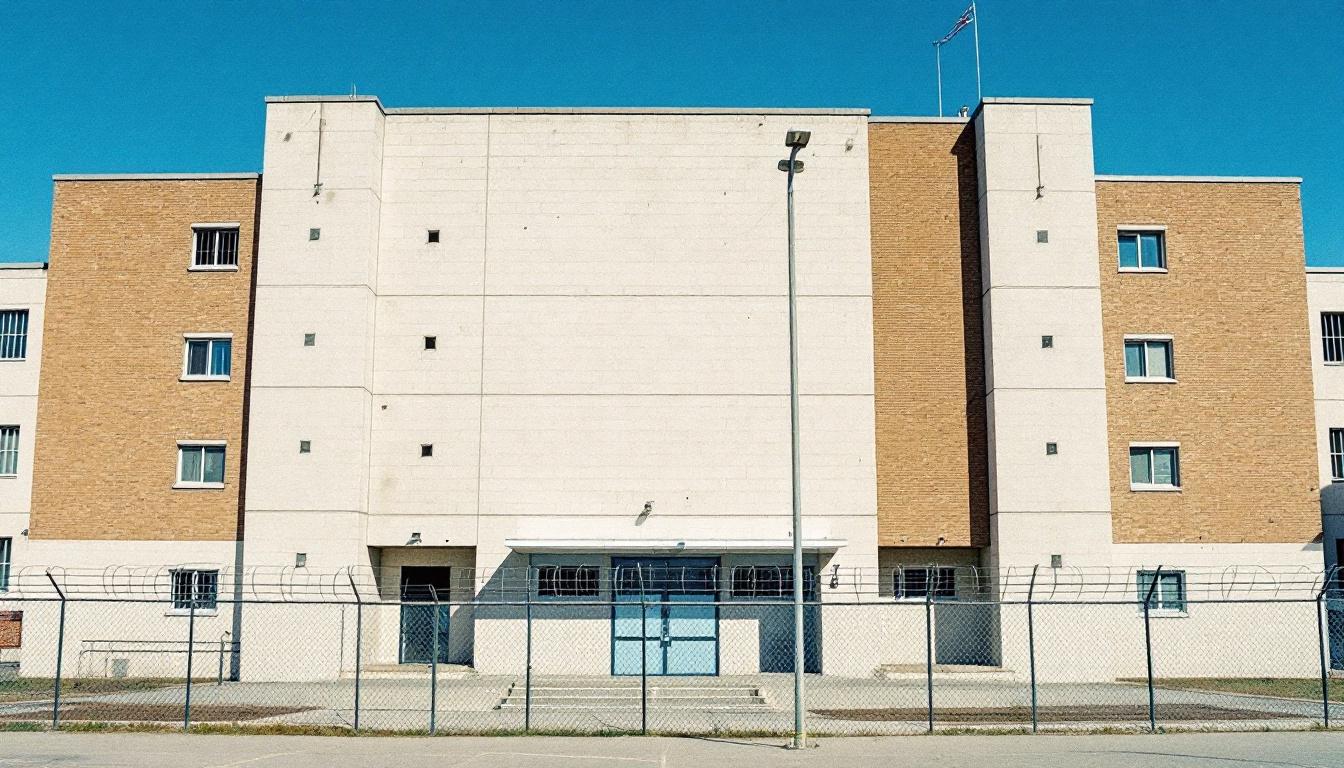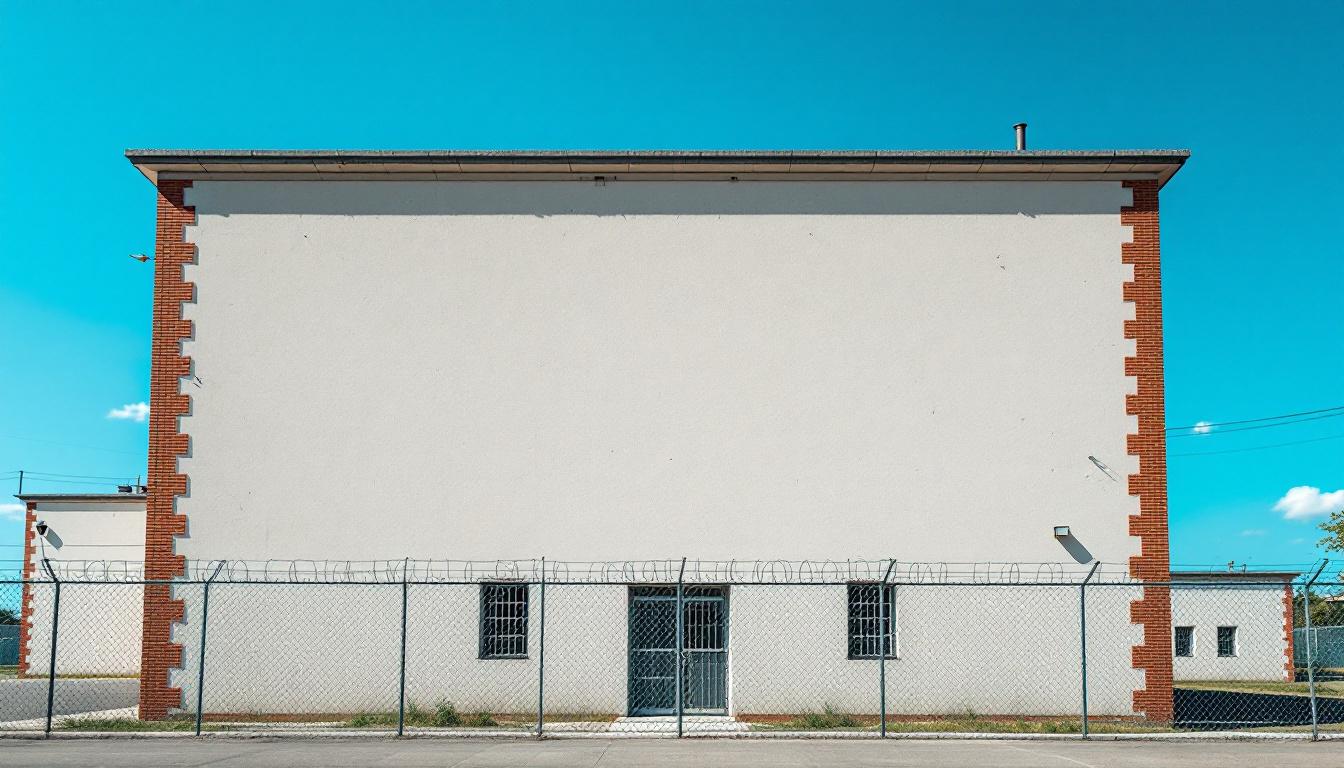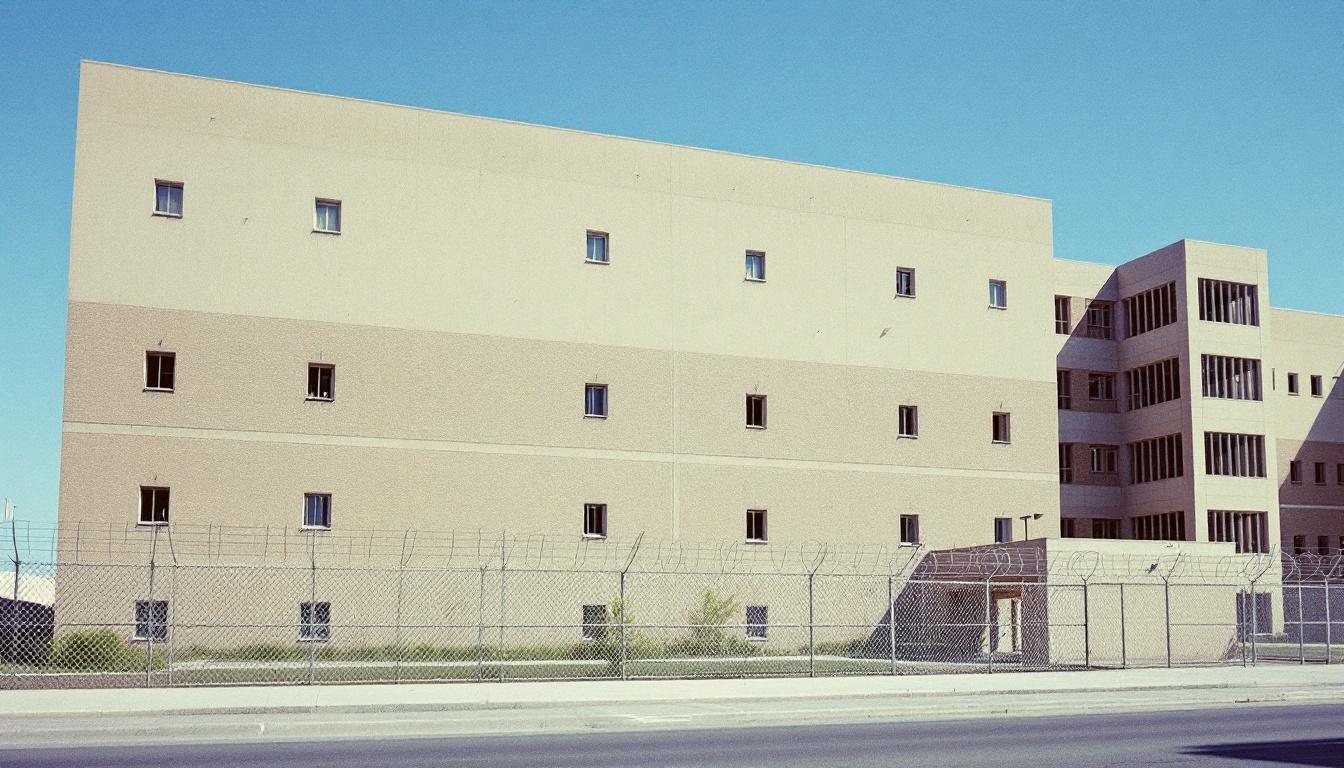
Quick Navigation
How to contact an inmate at Madison County Jail
This comprehensive guide will walk you through how to connect with an inmate at Madison County Jail. Follow the steps below to find an inmate and send letters and photos:
- Search for the inmate using our search tool below
- Create your account or log in to Penmate
- Write your message (up to 6,000 characters)
- Send instantly - inmates receive printed copies daily
Find an Inmate
Search for an inmate to start communicating today
Tip: You can search by first name, last name, or inmate ID number
To contact a person at Madison County Jail start by searching for the person on the facility website. Perform a search by following these steps:
- Step 1: Enter their first name and last name into the search form and click "Search"
- Step 2: Locate their inmate record
- Step 3: Write down their Inmate ID and any housing information provided
Important! Be sure to enter the person's full name. Nicknames should not be used.
How to Send Messages to Inmates

You can use your phone or computer to send emails, letters, and photos to an inmate. Messages are sent electronically to inmate tablets or kiosks at the facility. If you would like to send a message, start by searching for an inmate at Madison County Jail.
Sending Photos and Postcards

A great way to send love and support to a loved one at Madison County Jail is to send photos and postcards. It only takes a few minutes to send photos from your phone and it makes a huge difference. You can also mail postcards with words of support and inspiration, or design your own postcard for special moments like birthdays and holidays.
Important! Be sure not to send any explicit photos or they may not be approved by the facility. You can also use a photo printing app like Penmate to make sure your photos are printed at the correct size (4x6 or 3x5) and are mailed according to the rules and regulations of Madison County Jail.
Frequently asked questions about Madison County Jail
-
How long does it take to deliver a message?
If you're sending an email message your letter is usually delivered within 24-48 hours. For messages sent via mail you should expect delivery within 3-7 days. All messages will need be approved by Madison County Jail.
-
How much does it cost to send a message to Madison County Jail?
You can send a message free using your phone or mail a message via USPS for the price of a $0.60 stamp and envelope. You can also purchase credits or e-stamps from services starting at $1.99.
-
What services can I use to contact an inmate at Madison County Jail?
Penmate
You can use Penmate to send letters and photos to an inmate from your phone. It's an easy way to stay in touch during your loved one's incarceration. Use the inmate locator to find an inmate's location and contact information, then you can send messages within a few minutes.
Securus messaging
Securus may be another option for communicating with an inmate at Madison County Jail. You can create a friends and family account and purchase credits to send messages. All messages will be reviewed and must be approved by the facility.
JPay
Some county jails and state prisons may support sending messages with JPay. You must register an account with the system, find your loved one, and purchase stamps to send messages. For some locations you can also attach photos.
Smart Jail Mail
You may also check if Smart Jail Mail is available at Madison County Jail. Smart Jail Mail is operated by Smart Communications and has contracted with some state and county jails. After purchasing credits, your messages and photos are sent to the facility, printed out, and then handed out to your loved one.
-
What is the mailing address of Madison County Jail?
Mailing address:
Madison County Jail
515 S Liberty St
Jackson, TN 38301
Phone: (731) 988-3062 -
What are the visiting hours at Madison County Jail?
Visiting hours at Madison County Jail vary by housing unit and security level. Generally, visits are scheduled on weekends and holidays, with some facilities offering weekday visits. Contact the facility directly at (731) 988-3062 or check their website for the current visiting schedule. Visits typically last 30-60 minutes and must be scheduled in advance.
-
What items are prohibited when sending mail to Madison County Jail?
Prohibited items typically include: cash, personal checks, stamps, stickers, glitter, glue, tape, staples, paperclips, polaroid photos, musical or blank greeting cards, hardcover books, magazines with staples, and any items containing metal or electronics. Only send letters on plain white paper with blue or black ink. Photos must be printed on regular photo paper (no Polaroids). Always check with Madison County Jail for their specific mail policies.
-
How do I send money to an inmate at Madison County Jail?
You can send money to an inmate at Madison County Jail through several methods: 1) Online using JPay, Access Corrections, or the facility's approved vendor, 2) Money orders mailed directly to the facility with the inmate's name and ID number, 3) Kiosks located in the facility lobby, or 4) Over the phone using a credit or debit card. Fees vary by method, typically ranging from $2.95 to $11.95 per transaction.
-
Can I schedule a video visit with an inmate at Madison County Jail?
Many facilities now offer video visitation as an alternative to in-person visits. At Madison County Jail, video visits may be available through services like Penmate, Securus Video Connect, GTL, or ICSolutions. Video visits typically cost $10-20 for 20-30 minutes and must be scheduled in advance. You'll need a computer or smartphone with a camera and reliable internet connection. Contact the facility for their specific video visitation policies and approved vendors.
-
What identification do I need to visit an inmate at Madison County Jail?
All visitors must present valid government-issued photo identification such as a driver's license, state ID, passport, or military ID. Minors must be accompanied by a parent or legal guardian who can provide the minor's birth certificate. Some facilities require visitors to be on the inmate's approved visitation list, which may require a background check. Contact Madison County Jail for specific ID requirements and visitor approval procedures.
-
How can I find out an inmate's release date?
To find an inmate's release date at Madison County Jail, you can: 1) Use the online inmate search tool if available, 2) Call the facility's records department, 3) Contact the inmate's case manager or counselor, or 4) Have the inmate provide this information during a call or visit. For privacy reasons, some facilities only release this information to immediate family members.
Facility Overview
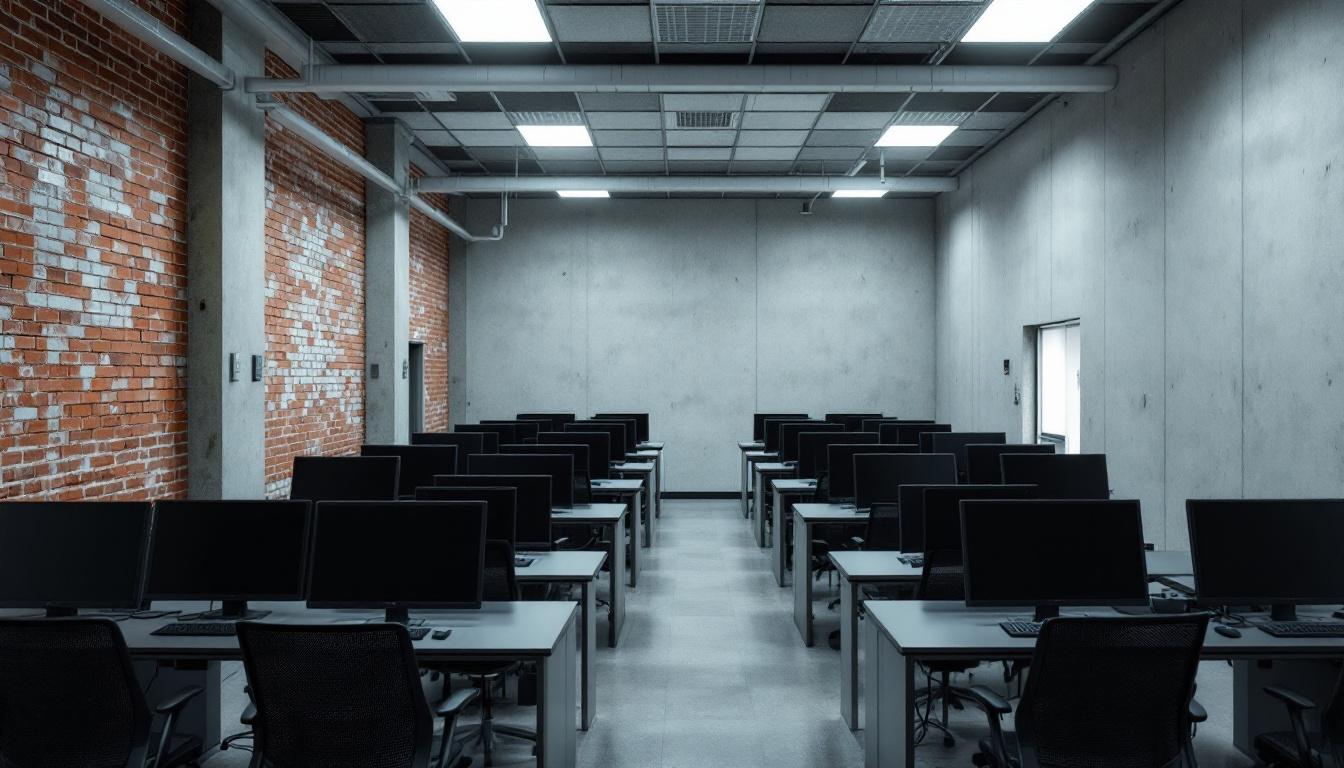
About Madison County Jail
Serving the greater Huntsville community with a commitment to both public safety and individual rehabilitation, Madison County Jail, AL operates as a cornerstone facility within Alabama's correctional landscape. This county jail typically maintains strong connections with local community organizations and service providers, recognizing that successful reintegration often depends on the collaborative efforts between correctional staff and community resources. The facility generally emphasizes programs that may include educational opportunities, substance abuse counseling, and job readiness training, all designed to address the underlying factors that often contribute to criminal behavior.
Located in Huntsville, the facility operates within Alabama's broader correctional framework while maintaining its focus on serving the immediate needs of Madison County residents. The AL correctional facility typically offers inmates services that extend beyond basic housing and security, often incorporating mental health support, library access, and visitation programs that help maintain family connections during incarceration. Through partnerships with local faith-based organizations, educational institutions, and workforce development agencies, the jail generally works to create pathways for successful community reentry. These collaborative relationships may include vocational training opportunities, addiction recovery support groups, and transitional housing assistance, reflecting the facility's understanding that effective rehabilitation requires comprehensive community involvement and sustained support networks.
Programs & Services
Personal transformation begins with access to meaningful opportunities that address the multifaceted needs of individuals within the correctional system. Madison County Jail typically emphasizes a comprehensive approach to inmate development, recognizing that successful reintegration requires addressing educational deficits, mental health challenges, and spiritual growth simultaneously. The facility's philosophy centers on providing structured pathways that enable inmates to develop essential life skills while fostering personal accountability and positive behavioral changes.
Educational services often form the cornerstone of the facility's developmental offerings, with programs that may include basic literacy instruction, GED preparation, and vocational training opportunities. These academic initiatives typically focus on equipping inmates with practical skills that enhance their employability upon release. Furthermore, the educational component often incorporates computer literacy and financial management courses, recognizing that technological competency and fiscal responsibility are crucial elements for successful community reintegration.
The facility's support infrastructure typically encompasses work release opportunities that allow eligible inmates to maintain employment while serving their sentences, thereby preserving family connections and economic stability. Mental health counseling services may provide individual and group therapy sessions designed to address underlying behavioral patterns and emotional challenges. Additionally, faith-based programs often offer spiritual guidance and community support, while life coaching services typically focus on goal-setting, decision-making skills, and developing sustainable strategies for personal growth that extend beyond incarceration.
Daily Life & Visitation
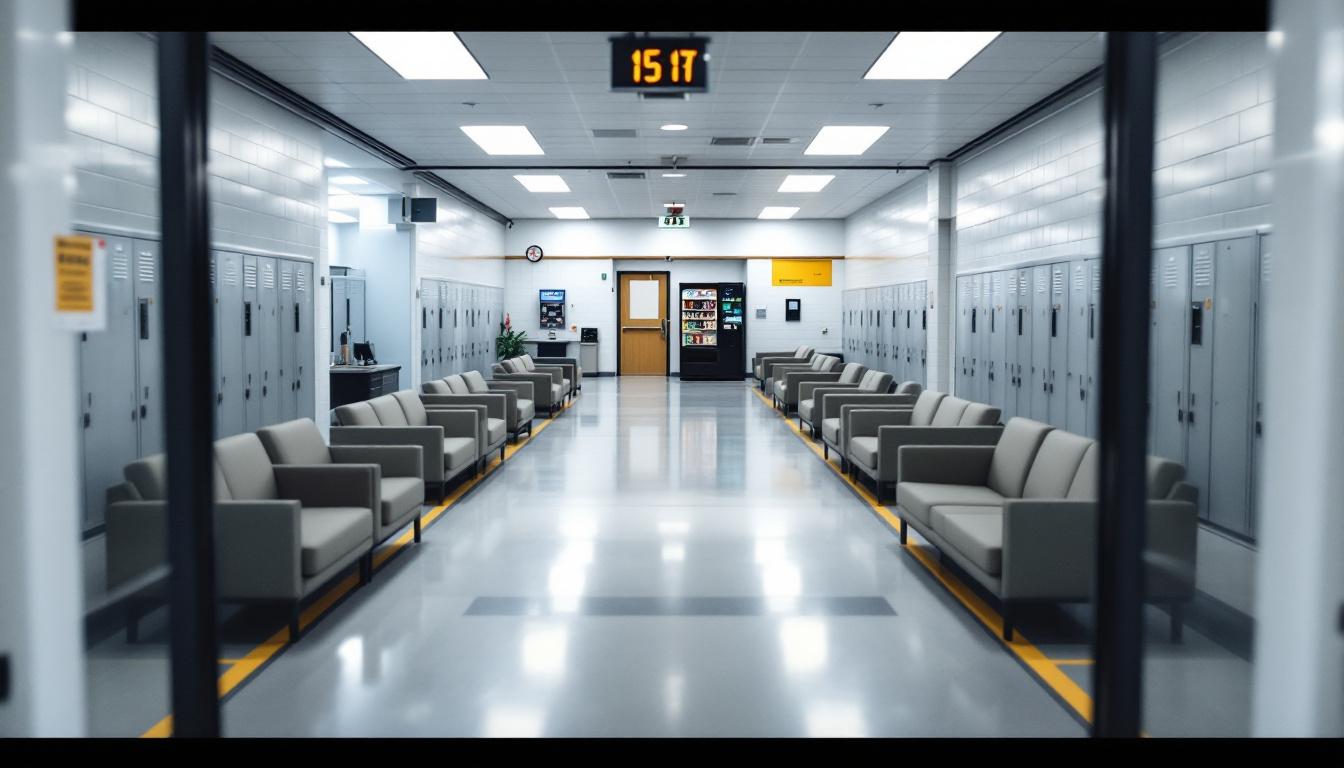
The concrete walls and steel doors of the housing units create a structured environment where every aspect of daily existence follows carefully regulated patterns. At present, inmates actively navigate a world where personal space is limited and privacy is minimal, with multiple individuals sharing cells or dormitory-style accommodations that typically include basic furnishings such as metal bunks, a small table, and essential storage areas. The controlled atmosphere requires residents to adapt quickly to institutional schedules and communal living arrangements that govern when they wake, eat, and participate in various activities throughout their stay.
Living accommodations generally consist of housing units organized by classification levels, where inmates may be assigned based on factors such as security risk, criminal charges, or behavioral considerations. The facility typically provides basic necessities including bedding, hygiene items, and institutional clothing, while inmates often have the opportunity to purchase additional comfort items through the commissary system. Furthermore, meal service usually occurs at designated times in common dining areas or may be delivered directly to housing units, with menus designed to meet basic nutritional requirements while accommodating various dietary restrictions and medical needs.
Although the environment presents significant challenges, structured programming schedules provide inmates with opportunities to maintain connections with family members through visitation sessions and telephone privileges that typically operate within established timeframes. Work assignments within the facility often include kitchen duties, maintenance tasks, and cleaning responsibilities that help inmates develop routine while contributing to daily operations. Recreation periods usually allow for physical exercise, television viewing, and limited social interaction, while educational programs and counseling services may be available to support personal development during incarceration.
Ready to Connect?
Start communicating with your loved one today
Search for an Inmate
